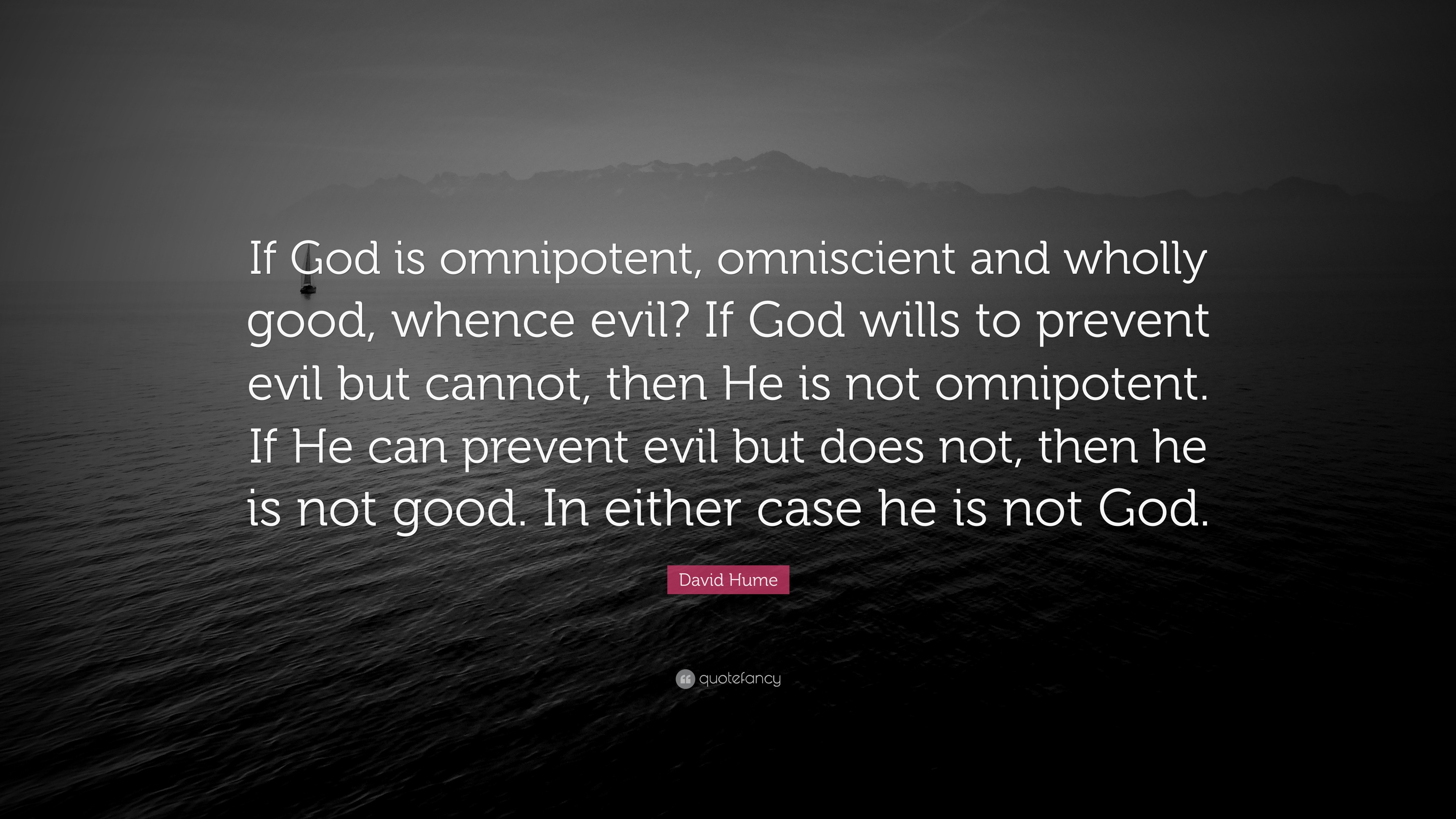

Therefore, we can safely assume that God is an infinitely small amount of all powerful, or more than omnipotent. The Paradox of Omnipotence Revisited CANADIAN JOURNAL OF PHILOSOPHY Volume III, Number 3, March 1974 The Paradox of Omnipotence Revisited J.

Moreover, in the bible or any other religious book, it never actually says that god is omnipotent. By using this we can find the smallest number, which is 0.01.

This type of infinity is the number of decimals between any two numbers. However, the type of infinity I found that could possibly put god’s power into perspective is uncountable infinity. The first is countable infinity, which is just counting by a set amount up to infinity (1, 2, 3.). If God can do absolutely anything, then God can remove His own omnipotence. After further research, I discovered this was called the omnipotent paradox.Īs the days progressed, I began to do further research, and I looked at the two types of infinity. The paradox essentially implies that God would no longer be omnipotent because He has a weakness, when the definition of omnipotence is not having a weakness. However, if they cannot lift it, then they’re not completely powerful. A clear stumbling block for perfect being theology.Today, a puzzling thought occurred to me, which was that if God is incredibly powerful, then they should be able to create a rock so heavy that even they can’t lift it.
#Omnipotence and omnipresence paradox free#
Yet for theism to employ the free will defense it must adopt something like this latter argument here, arbitrary though it is, without any reason at all to prefer it over the alternative. Now if the second style holds what we're left with is an undecidable question. If a being with second-order omnipotence (like an angel/demon or whatever) bestowed upon a third being (or however far it needed to go) the power to make uncontrollable choices, for God to control their choices would be to control things that are omnipotently made uncontrollable, and that is also logically impossible. Since God can't logically create them the free will defense fails right out of the gate.īut wait! It turns out there is an alternative which goes like this: God could create a lesser being with a kind of second-order omnipotence - an unlimited power to determine what powers to act things should have. God can't logically create things beyond his own control, yet to square excessive evils with omnibenevolence, we need beings with freedom beyond God's control. Which is an acceptable answer imo.īut note what happens when we apply the same logic to freedom: Can an omnipotent God create beings with will's even he can't control? Surely omnipotence means the ability to control everything, so the phrase 'things which an omnipotent being can't control' appears to be an obvious logical contradiction. He can't because it's logically impossible. Similar to asking if God can make a square circle. It's usually something along the lines of, Can God make a stone so heavy even he can't lift it? The usual response is that the question is incoherent. So with that in mind, let's move to the omnipotence paradox, which we're all familiar with. And to an omni God that allowance wouldn't hold at all. The more completely a matter is within our power and knowledge the less ground there is to claim distance from responsibility for it. But this is an allowance that applies to humans, not to all powerful Gods. We might agree that letting someone die when one could have saved them is not quite the same as killing them (though one may be as bad as the other in certain cases). But in order for this line of defense to get off the ground, it must also be said that God not only doesn't control the choices of free beings, but cannot do it. To maintain his omnibenevolence and distance God from evil and responsibility for all that occurs it's often claimed that beings have significant freedom to make their own choices.


 0 kommentar(er)
0 kommentar(er)
